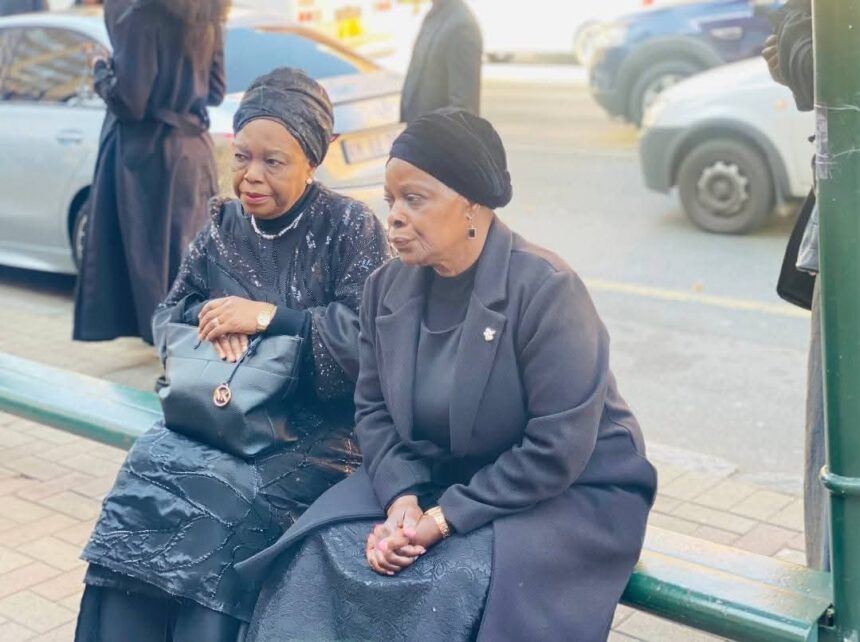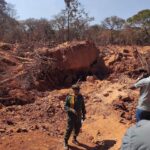GRACE CHAILE
LATE Zambia’s Sixth President Edgar Lungu did not travel to South Africa solely for medical reasons but fled the country fearing continued harassment and persecution from the current regime that had been tormenting him since leaving the presidency in 2021, former First Lady Esther Lungu has told the South African High Court.
In an affidavit filed in opposition to the Zambian government’s application demanding the release and repatriation of former President Lungu’s remains, Mrs Lungu has submitted that her husband was compelled to leave Zambia surreptitiously, without official permission from President Hakainde Hichilema fearing that the same would deny him permission to travel thereby fearing for his life and deteriorating health.
“The Respondents deny that the late President Lungu only came to South Africa for one purpose (of seeking medical attention). It is clear form the background above that the late President Lungu fled Zambia under the very real fears of continued persecution. After leaving Zambia without permission, the late President was aware that there was little or no chance of returning to Zambia,” Mrs Lungu said in her affidavit.
She has insisted that it is the wish of the family of late President Lungu that the former President should be buried in South Africa and opposed the Zambian government’s claim to determine the place and manner of his funeral and burial.
However, Mrs Lungu has dismissed arguments in the application, asserting that no such agreement existed and that the state had revoked all his benefits, reducing him to a private citizen at the time of death.Mrs Lungu stated that prior to undergoing surgery in South Africa, the late President expressed a strong desire that President Hakainde Hichilema should never attend his funeral because the torment, persecution and mistreatment he had suffered at the hands of the current Zambian head of State. “He made it very clear that the person (President Hichilema) who tormented him in life should not preside over his death,” she submitted.
She contended that the Zambian government’s application was legally flawed and lacked enforceability under South African law, arguing that Zambia’s constitutional provisions and customs could not be imposed beyond its borders.
She emphasized that the family’s right to dignity, cultural expression, and private decision-making over burial arrangements should be respected by the Zambian government.
According to her submission, late President Lungu had faced escalating hostility from his successor, following the change of government in August 2021.
Though the former President had initially received recognition as a former head of State, Mrs Lungu said this respect was quickly eroded, and by October 2023, his benefits had been revoked and not suspended through a formal government communication.
Mrs Lungu further claimed that her family had been subjected to a sustained campaign of political retribution, listing multiple criminal cases brought against her and her children between 2022 and 2025, alleging they were politically motivated and intended to humiliate former President Lungu and his family.
She recalled an attempted arrest at her former home in 2023 and incidents involving police intimidation, including one where officers tried to remove the late President from a bishop’s office in Kabwe.
In her affidavit, she attached video evidence, podcast interviews, and official letters to support the claim that the late President was vilified and denied access to critical healthcare at the time he needed medical treatment the most.
She said former President Lungu was prevented from traveling abroad for treatment in 2023, with state officials withholding the necessary clearance. This, she argued, led to fatal delays in treating his oesophageal cancer.
Upon arriving in South Africa in January 2025, President Lungu was diagnosed with terminal cancer, stating that his doctors reportedly informed the family that the condition could have been treated had he received medical attention earlier.
“Due to the cancer’s progression, only palliative care remained possible,” Mrs Lungu submitted.
She also revealed that the family had since explored the possibility of applying for protection or permanent residence in South Africa due to continued legal harassment and political hostility in Zambia.
The family, she said, remained committed to appearing in Zambian courts for ongoing cases but could no longer reside in the country permanently.
Mrs Lungu has asked the South African High Court Gauteng Division in Pretoria to dismiss the application for repatriation, stressing that her husband’s dying wishes and the family’s constitutional rights must be upheld.
“The late president was consistent in stating that he did not want President Hichilema near his funeral,” she reiterated.











